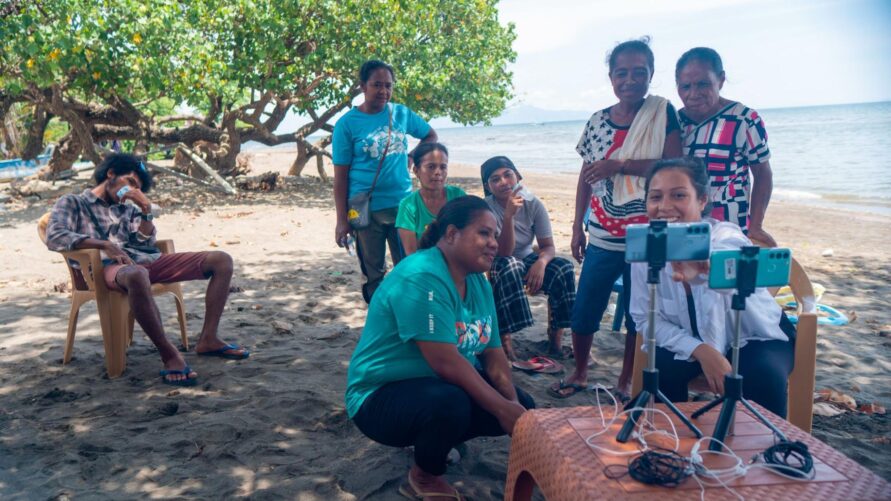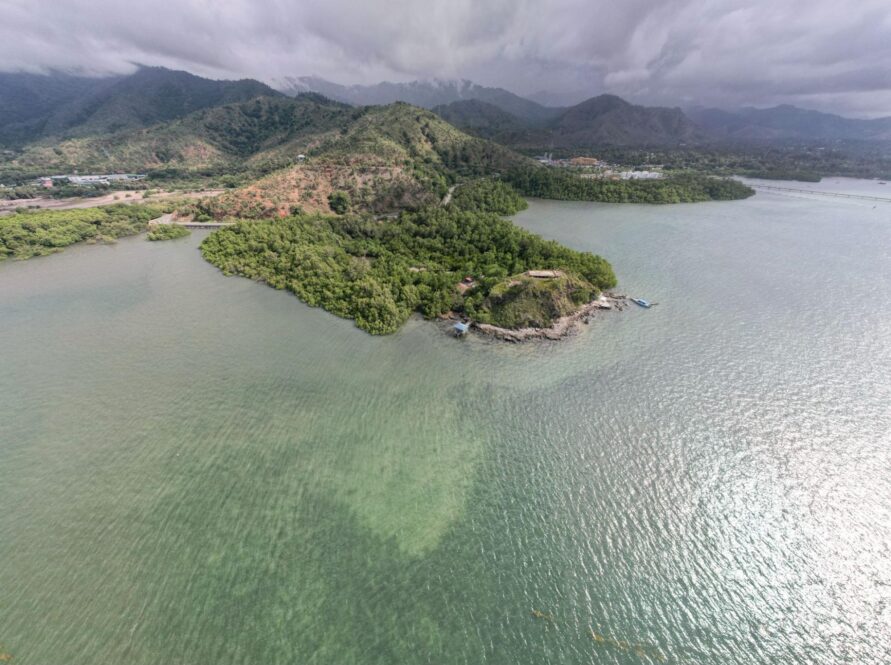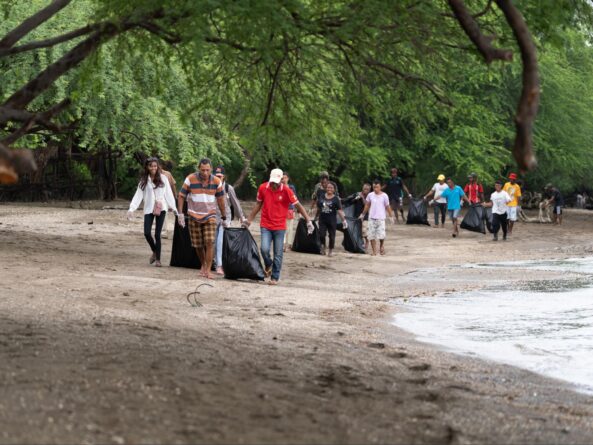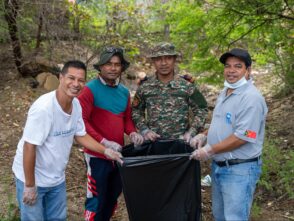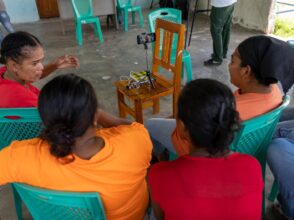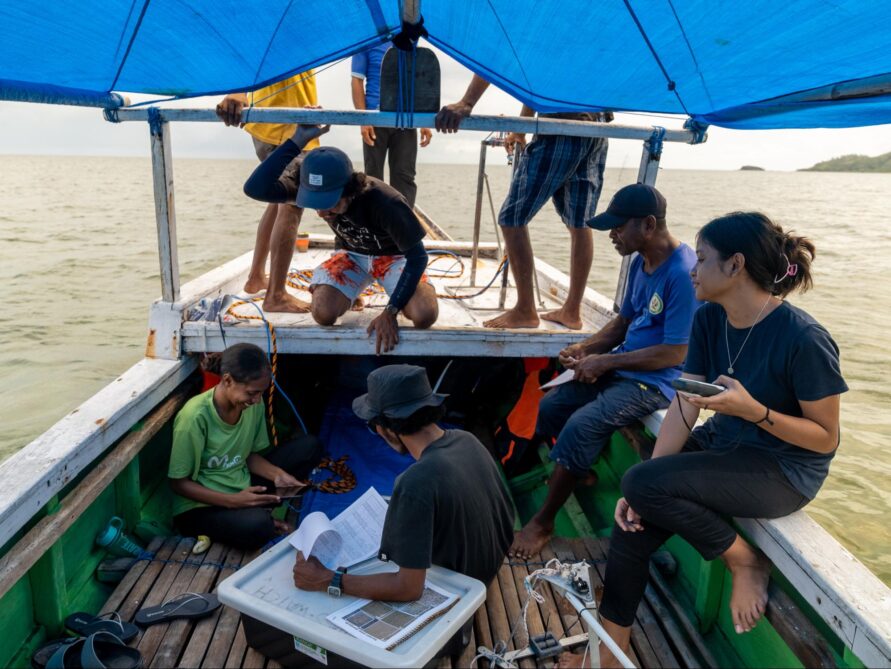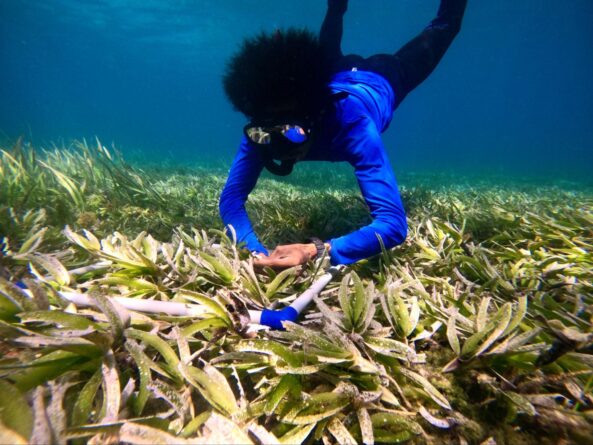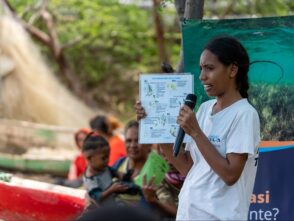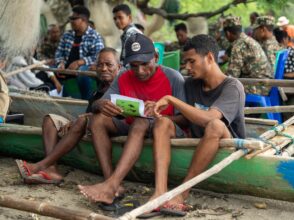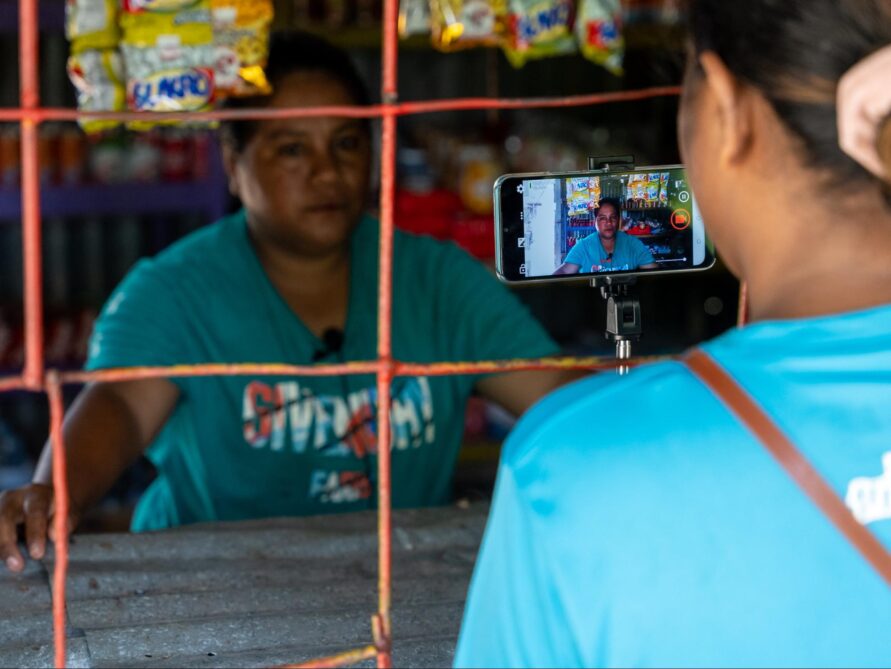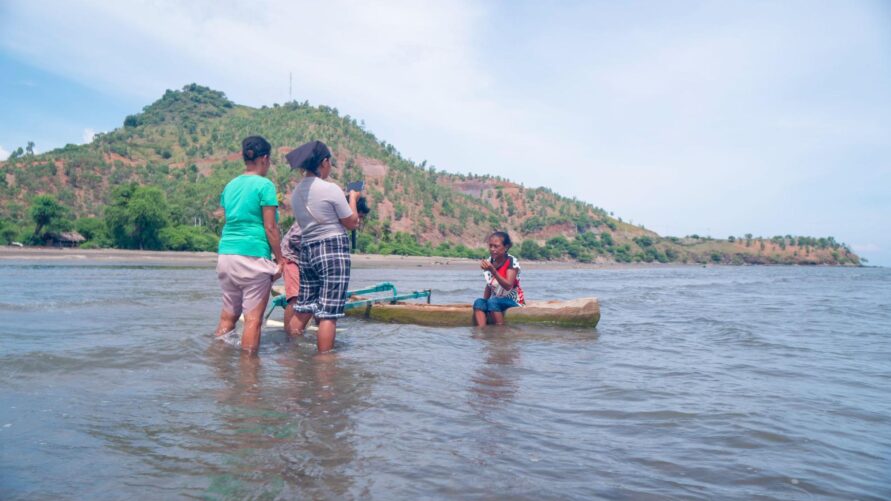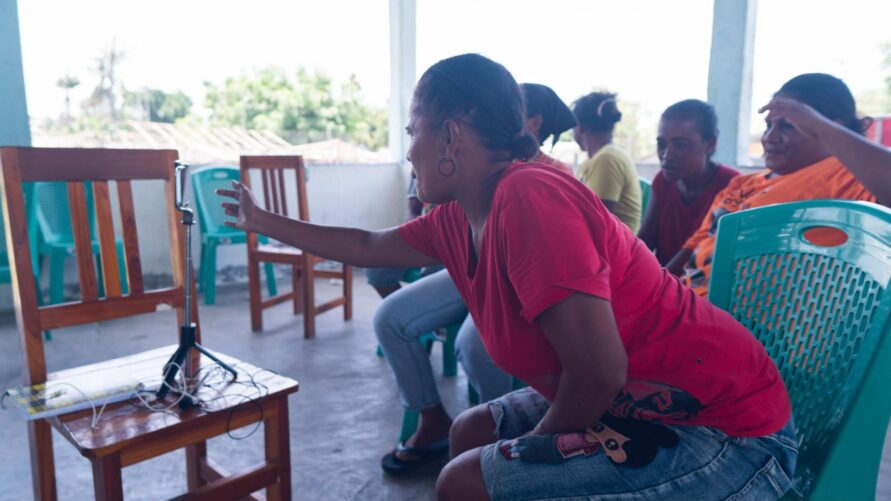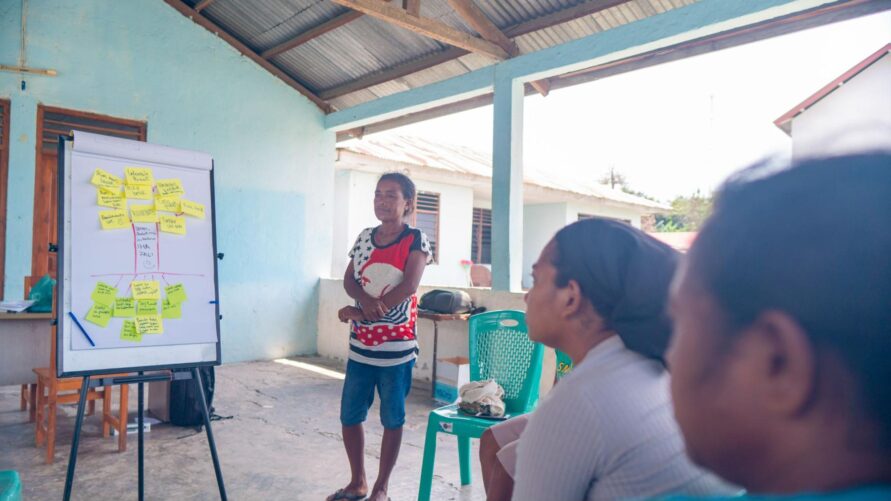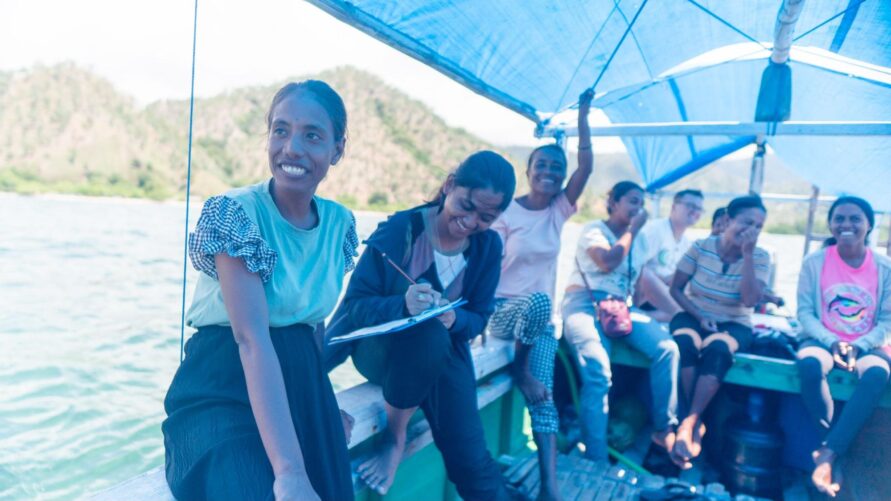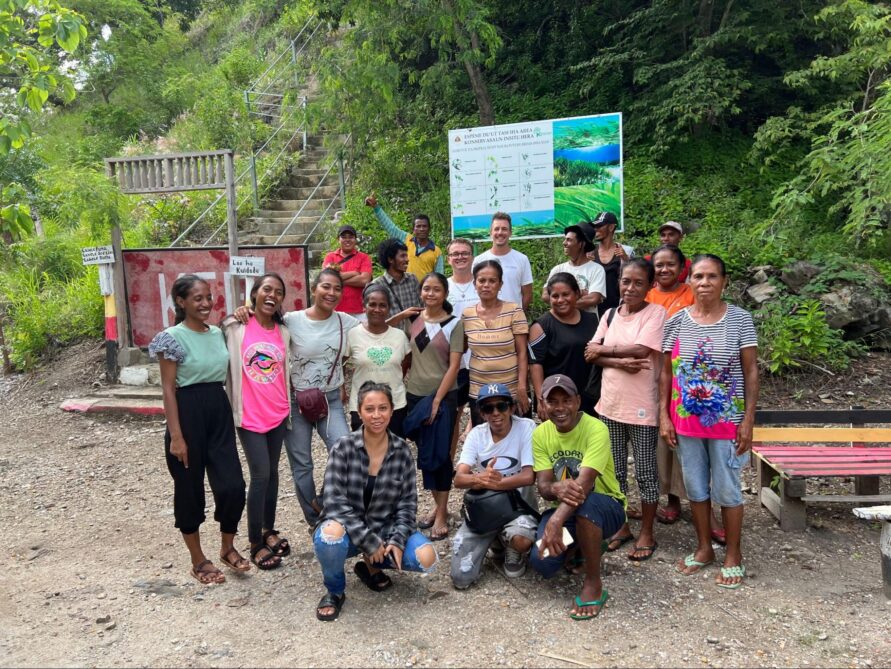Despite boasting some of the most biodiverse marine ecosystems in the world, small-scale fishers in Timor-Leste are increasingly concerned about declining daily catches. Participatory video is a powerful community engagement and communications tool that can help uncover hidden challenges and local solutions.
Participatory video is a set of techniques designed to involve a group or community in shaping and creating their own film. The processes are intended to be inclusive and empowering, enabling groups of often under-represented people to identify and take action to solve their own problems and share their needs and ideas with decision-makers and other communities.
The village of Hera, on the southernmost edge of the Indonesian archipelago, is a place of blissful natural beauty. In the rainy season, it is lush and green, from the dense meadows of swaying seagrass under the water to the mangroves that stand tall on the shoreline and up to the mountain forests. Fishing is the main livelihood for people living closest to the sea. Still, in recent decades, people from the mountains have also come to the coast to make the most of the traditionally rich marine resources.
Blue Ventures Timor-Leste (BVTL) works with two coastal sub-villages in Ai-lok Laran and Sukaer Laran, where fishing is a way of life. At first glance, Hera’s fisheries look to be well supported by extensive seagrass meadows, plus mangrove and coral reef ecosystems. But fishers have noticed consistent declines in their catches and have spoken about overfishing, severe floods, and destructive fishing practices damaging fish stocks.
We worked with local leaders and fishers to develop a series of activities in March to encourage community discussions around locally led marine management. We started with an event to celebrate World Seagrass Day that involved stakeholders from across the region and focused on raising awareness of the important ecosystem services that seagrass meadows provide to coastal communities. After this, we held an interactive three-day workshop using participatory video to explore seagrass and marine management needs, challenges and solutions, using storytelling and video as an effective communication tool. With local fishers and Hera-based NGO Konservasaun Flora no Fauna (KFF), we mapped the seagrass meadows. We assessed the fish groups in the Bay to get a better picture of ecosystem health and which interventions might improve local fisheries.
Although the fishers in Hera knew the important marine habitats on their doorstep, they did not know what condition they were in and how these ecosystems could recover. We hoped the World Seagrass Day event would increase awareness about the benefits of caring for and restoring seagrass areas. Indeed it proved catalytic in recognising the importance of marine ecosystems and discovering a collective desire to introduce community-based marine management measures.
The participatory video workshop prompted moments of introspection among the participants, who were mostly gleaners who fish in nearshore seagrass areas. Gleaners are low-tide fishers who fish on foot with basic tools. They discussed why there are fewer fish now than in previous years, what current activities might be impacting seagrass meadows, and how initiating a Tara Bandu, which is our name for a locally managed protected area using traditional customary law, could improve the health of the seagrass and local fisheries. The gleaners recognised that seagrass loss was consistent with the decline in fish and that harmful fishing practices and overfishing were still common. It was refreshing to see people looking at themselves rather than pointing to others during discussions about how actions affect their environment. At the end of the workshop, the group were determined to put their new skills and knowledge to immediate use by making a short film to advocate for positive change now and by creating a community-led Tara Bandu.
The added benefits of using participatory video to facilitate marine management discussions are the communication skills and knowledge picked up along the way. From teaching the basics of camera angles, lighting, and sound, to interview techniques and formulating open-ended questions that would lead to good responses. This was picked up instantly when they designed their first interview question, ‘How happy are you going fishing compared to before?’ At Blue Ventures, we often ask this question, but we had not used ‘happiness’ as an indicator before, and the insight was enlightening.
They filmed the responses, and I felt they were mentally preparing themselves the night before. They took turns filming each other and spoke of the happiness of time spent with their partners or parents in the seagrass areas and brought lots of fish back home. One woman said she felt sad about the increasing numbers of fishers, with everyone from grandparents to little kids now fishing. They also talked about harmful fishing methods, such as poison, which farmers from the mountains use to fish when the rains fail. The coastal people are unhappy about this and want to meet them to find a solution to this problem because they know that this poison kills everything in the water, from small to big fish, and they fear this also impacts the seagrass.
The issues and plans they discussed really matter to them because they directly impact where and how they live. They have the most to gain and the most to lose, which, combined with their local knowledge and expertise, is why community-based decision making has proven to be so effective in marine resource management in Timor-Leste. In the communities where we work, people know there are issues but don’t want to discuss them or don’t know how to start conversations with the wider community. Providing interactive and engaging tools like participatory video can kickstart important conversations in more informal and fun ways, leading to creative solutions and collective planning.
The highlight of the activities was seeing the women involved in participatory videos and leading the process. The energy, discussions, ideas and solutions required no external input aside from providing them with an opportunity to be heard. For every 10 percent we gave, we got 150 percent back from them! In our Timorese culture, men usually speak up, which makes women more silent and limits their participation. It takes a brave woman to speak up in public, and I was so excited to see them all participating in these events and their confidence growing. By the end of the workshop, their message was clear, they want to do more; they want a functional Tara Bandu. They want to restore their seagrass meadows and plant new mangroves so that they can protect their coasts and catch trash before it reaches the ocean. They want regular communication with the government and other local stakeholders to work together to improve their natural environment and local livelihoods. They want to go big!
On the last day, we joined the men who fish from boats further out at sea, and it was so refreshing to see the women who fish locally on foot interacting with sea fishers from other neighbourhoods and exchanging ideas with them. Seeing the seagrass from a boat and discussing the initial results from the mapping and fish assessments only increased their collective eagerness to set up a Tara Bandu to protect and manage their resources for now and future generations.
The seagrass events effectively inspired locally led action at a time when fishers were in a state of inertia following severe flood damage, falling fish catches and a lack of alternative livelihoods. These multiple losses had sharpened community members’ desire for change, and seagrass protection and restoration was the perfect topic for engagement, especially because shellfish, snapper, emperor and rabbitfish, commonly found in seagrass meadows, are popular locally.
These activities are part of the Seagrass Ecosystem Services Project, managed by the Secretariat of the Memorandum of Understanding on the Conservation and Management of Dugongs and their Habitats throughout their Range of the Convention on the Conservation of Migratory Species of Wild Animals (CMS Dugong MoU).
This project is part of the International Climate Initiative (IKI) and supported by the Federal Ministry for the Environment, Nature Conservation and Nuclear Safety (BMU) based on a decision of the German Bundestag.



